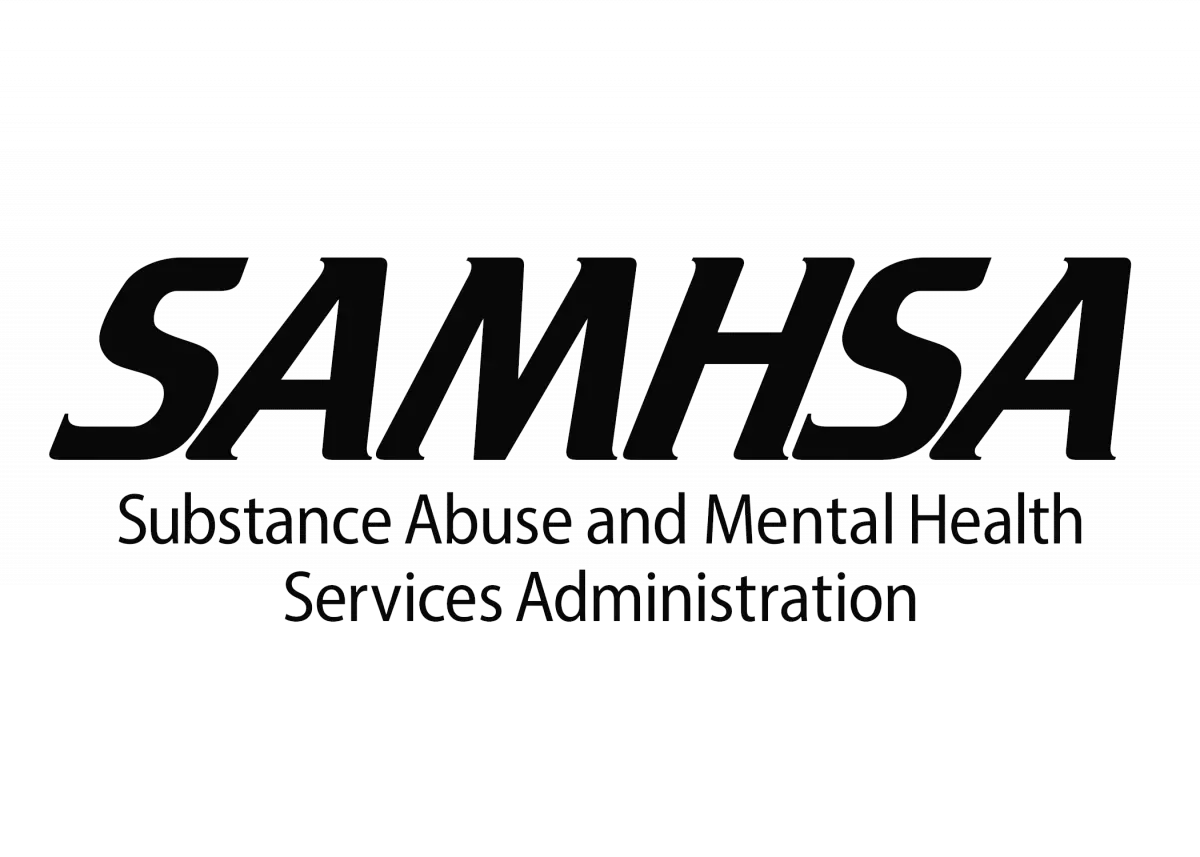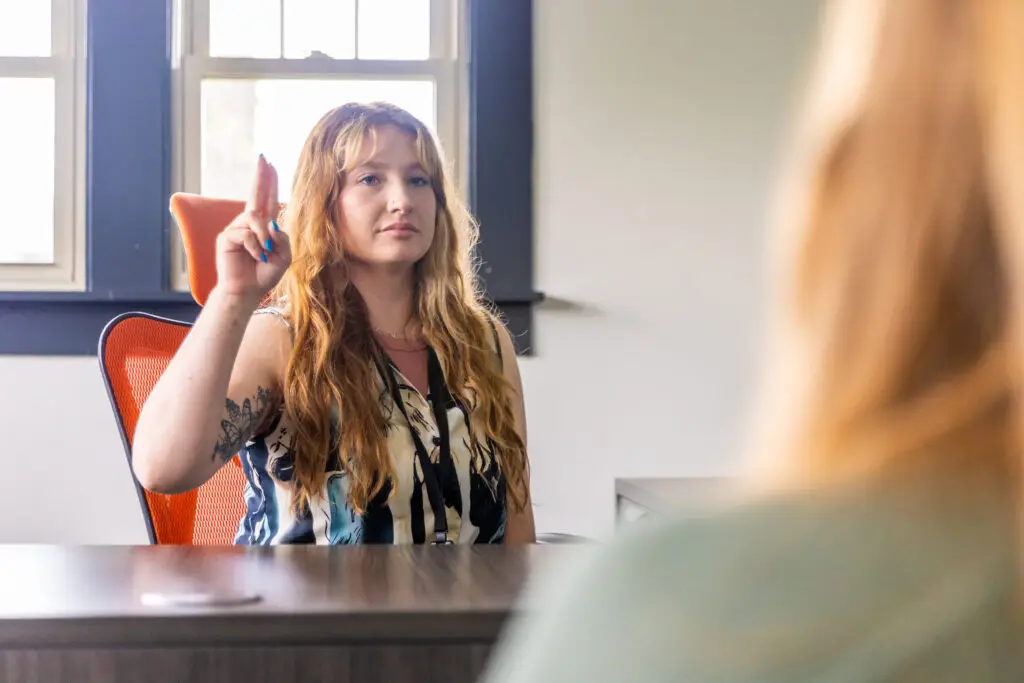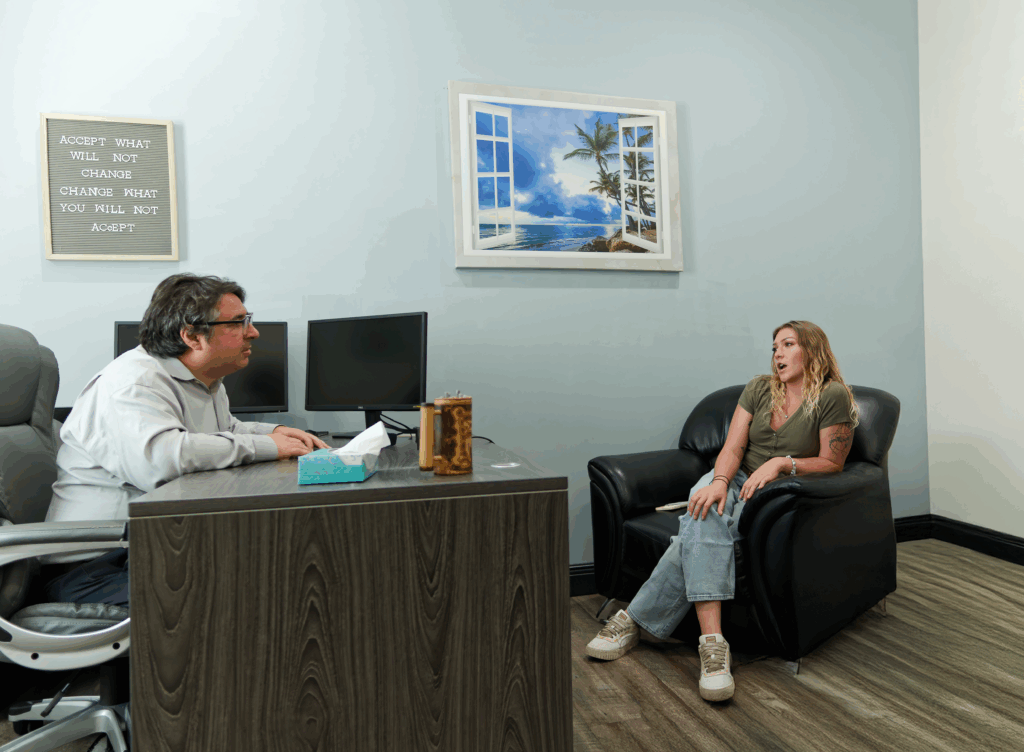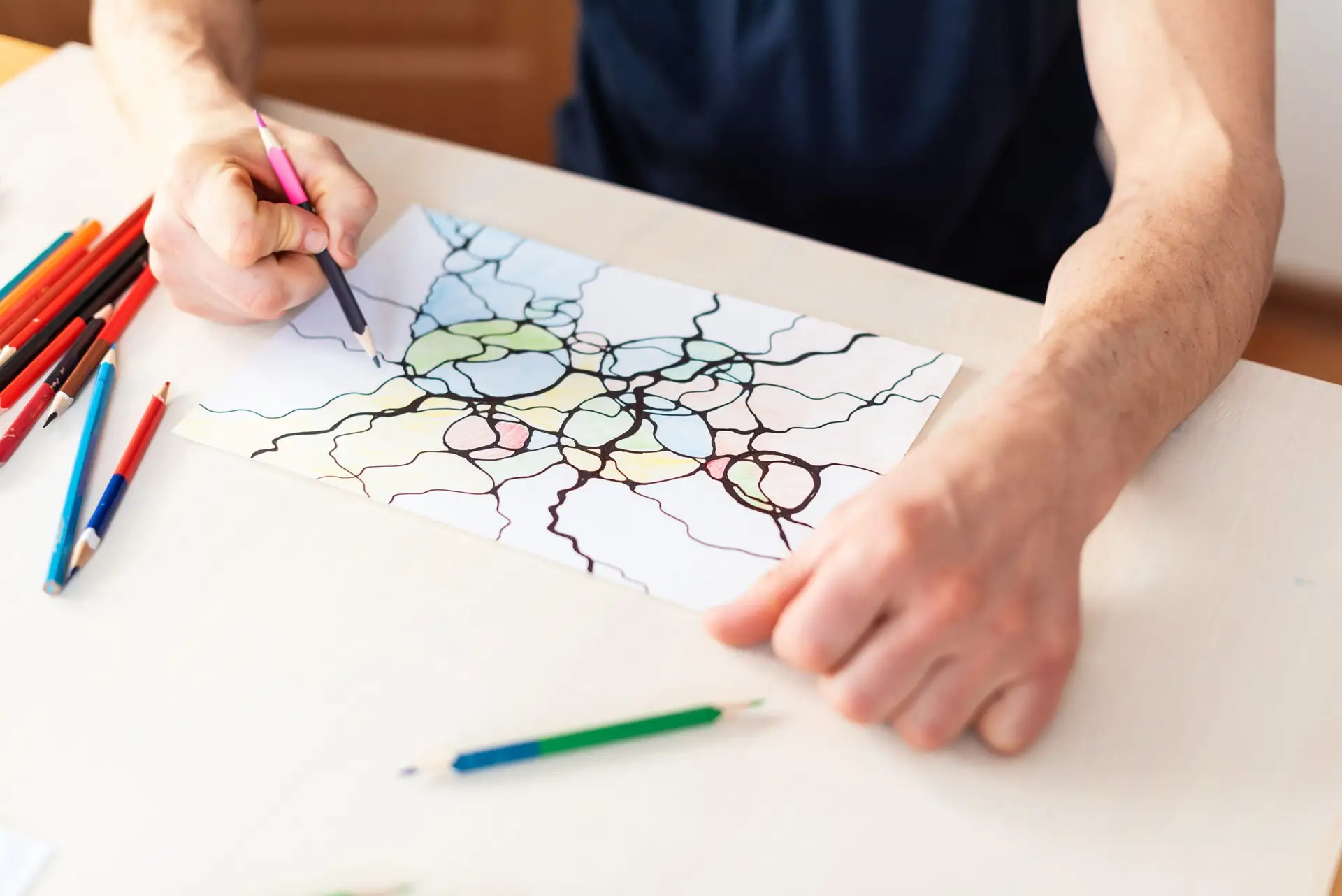Core Therapy
Experiential Therapy for Healing and Growth
Experiential therapy helps you heal through action—not just words. By using creative activities and guided experiences, you can express emotions, process difficult memories, and practice healthier coping skills. If you’ve ever felt like talking alone wasn’t enough, this hands-on approach gives you another way to move forward.
Certain Experimental Therapy are Recommended by



Understanding Experiential Therapy
Experiential therapy uses activities like role-play, guided imagery, art, or outdoor experiences to help you connect with emotions and memories in a deeper way. Instead of only talking about feelings, you engage in activities that bring them to the surface, making them easier to understand and work through.
It’s often used for substance use, trauma, anxiety, depression, and relationship challenges. By engaging both body and mind, you can gain fresh insight into old patterns and discover healthier ways to cope.
Talking alone can sometimes feel stuck on repeat. Experiential therapy gives you another way to process emotions by bringing them to the surface through action. That shift often makes progress feel faster and more real.
These sessions are about practice, not just insight. You’ll try out stress-relief techniques, grounding tools, and healthier ways of responding in the moment. Over time, those tools become habits you can rely on outside of therapy.
The more you practice in session, the more natural these responses become. Each small success builds your trust in yourself, giving you steady confidence to handle challenges as they come.




How Experiential Therapy Works
In experiential therapy, you take part in guided activities designed to help emotions surface in a safe, manageable way. These aren’t about performance or “getting it right”—they’re about exploring feelings and discovering healthier ways to cope.
Start with What Matters to You
Your therapist begins by asking what feels most important right now—maybe easing stress, working through a painful memory, or learning how to set healthier boundaries. You decide the focus together.
Take part in an activity
From there, you’ll be guided into an activity that feels safe for you. It might be drawing, role-playing a real-life situation, or a calming visualization. There’s no “right way” to do it—the goal is simply to explore.
Notice and reflect
As you take part, you may find feelings or memories surfacing naturally. Instead of pushing them down, you get space to notice them—with your therapist supporting you every step of the way.
Talk It Through
Afterward, you’ll reflect together on what came up. This is where small insights often turn into big “aha” moments—helping you connect the experience to what’s happening in your everyday life.
Practice New Tools
Many sessions give you a chance to actually rehearse new ways of coping—like calming your body, speaking up for yourself, or shifting a negative thought. Practicing in session makes it easier to use these skills outside of therapy.
Take It with You
Before wrapping up, your therapist helps you think about how to carry what you’ve learned forward. That way, the progress you make in the session stays with you long after you leave.
Guided by Experience and Care
Experiential Therapy at The Haven Detox is led by licensed therapists who specialize in helping you heal through action and reflection. They’re trained not only in the techniques themselves—like role-play, art, and guided imagery—but also in knowing how to create a safe, supportive space where you feel comfortable opening up. Their expertise means every activity is thoughtfully chosen to match your needs and fit seamlessly into your overall treatment plan.

Yoga Instructor and Lead Client Care Liaison
- Nationally Accredited Peer Recovery Specialized 14+ of experience

Art Therapist
- 36+ years of experience helping individuals in recovery heal through creative expression.
Conditions Experiential Therapy Can Help With
Experiential therapy gives you space to explore what’s going on beneath the surface—especially when talking alone doesn’t feel like enough. It’s designed to help you feel safe, supported, and more in control of what you’re facing.
Substance Use and Cravings
If you’re struggling with cravings or triggers, experiential therapy can help you understand what’s driving them. By practicing healthier coping tools during sessions, you’ll feel more prepared to handle those moments in real life.
Family and Relationship Struggles
Relationships can be complicated. By using role-play and reflection exercises, you’ll be able to see patterns more clearly and try out healthier ways of responding. It’s a safe space to practice setting boundaries and building stronger connections.
Depression
Depression can make it hard to put feelings into words. Experiential therapy offers another outlet—whether that’s through art, role-play, or movement—helping you reconnect with hope and small moments of joy.
Anxiety and Panic
When worry takes over, it can feel impossible to slow down. In these sessions, you’ll practice calming techniques and new ways to face anxious thoughts—so you feel steadier when stress shows up.
Trauma and PTSD
Trauma affects both body and mind. Experiential therapy offers safe ways to process those feelings so the past feels lighter and less overwhelming.
A Supportive Setting
At The Haven Detox, these sessions take place in calming, comfortable spaces. Sometimes you might be in a quiet therapy room, other times outdoors, or in a creative setting with art supplies or music. Wherever you are, the space is designed to feel safe, supportive, and open to whatever you need that day.
Variety of Therapies to Choose
Fun Environment for Stress Relief
Explore Emotions in a New Way
Locations Offering Experiential Therapy
Choose from any of our welcoming centers across the country, each designed to provide a private and peaceful space for healing.

The Haven Detox - New Jersey
Space Available
Insurance Accepted
Experiential therapy Offered

The Haven Detox - Florida
Space Available
Insurance Accepted

The Haven Detox - Arizona
Space Available
Insurance Accepted

The Haven Detox - Little Rock
Space Available
Insurance Accepted

The Haven Detox - West Memphis
Space Available
Insurance Accepted

The Haven Detox - New England
Space Available
Insurance Accepted
Experiential Therapy Success Stories
Kasey J.
Colin N.
John M.
Insurance Coverage & Accessibility for Experiential Therapy
Most major insurance plans cover Experiential Therapy when delivered by licensed clinicians. We provide a free, confidential benefits check before your first appointment so you know exactly what to expect. Financial assistance and sliding-scale options are also available.
FAQs About Experiential Therapy
What is Experiential Therapy, in real life terms?
It’s therapy that helps you do the feelings work, not just talk about it. Instead of staying in your head, you might role-play a tough conversation, map a craving with simple objects, use gentle movement, or practice a grounding exercise. The goal is to shift what’s happening in your body and nervous system so your mind has room to choose something different.
How is it different from traditional “talk therapy”?
Talking helps you understand patterns. Experiential work helps you feel and rehearse new ones. Think of it like learning to swim: you’ll still discuss what’s going on, but you’ll also get in the shallow end with a coach and practice strokes until your body remembers how to stay afloat.
What actually happens in a session?
You and your therapist pick one real situation that’s been hard—say, a 9 p.m. urge to use or a conflict with a partner. You’ll slow it down together, add a brief grounding tool (breathing, a cold washcloth, feet on the floor), and try a small experiment: rehearse a boundary, talk to your inner critic in an empty-chair exercise, or practice a 10-minute craving plan. You leave with 1–2 simple steps to try during the week.
What problems can it help with?
People use it for substance use, anxiety, trauma, depression, grief, and relationship stress. If your body goes on “autopilot” under stress—numb, flooded, or reactive—experiential tools can help you get the wheel back.
Will I have to relive trauma?
No. Sessions move at your pace. You’ll use grounding and take things step by step so you’re never overwhelmed. If something feels like too much, you can pause, reset, and try a gentler approach.
Do I need to be creative or artistic for this to work?
Not at all. No art skills required. Everyday objects, simple movements, and plain language are enough. If you can notice your breath and name a feeling (“tight chest,” “hot face”), you’re doing it right.
How soon will I notice a change?
Many people feel small wins within a few sessions—sleeping a bit better, fewer blow-ups, an urge that passes. Bigger changes build with practice. Think “progress, not perfection,” measured in real-life moments (you made the call, you skipped the drink, you took the walk).
Can it work alongside detox, medication, or 12-step support?
Absolutely. Experiential skills—grounding, craving plans, emotion regulation—can make withdrawal, medication adjustments, and early recovery steadier. They also fit well with peer support, giving you concrete tools between meetings.
Is there research that Experiential Therapy works?
Yes. A 2023 meta-analysis of randomized controlled trials found that humanistic-experiential therapies (which include approaches like emotion-focused and person-centered experiential work) improved depression more than treatment-as-usual right after therapy and performed similarly to other active treatments at post-treatment. That study supports experiential methods as a valid treatment option. ⓘ
How do I know if it’s a good fit for me?
If you get what’s going on but still feel stuck…if stress hijacks your body before your brain catches up…if you want tools you can use in the moment (at work, in the car, at 10 p.m.) — experiential work is worth trying. Start with one session, one goal, and see how your week goes.
Related Treatment Options
Have Questions? Let’s Talk!
Call the free 24/7 helpline to get answers and a plan for treatment that’s best for your specific medical and insurance situation — even if it’s not with us.
24/7 Support
Need someone to talk to? We’re always here—day or night.
No Commitment
Ask questions, get guidance—no pressure, no obligation.
100% Private
Your story stays with us. Confidential support, always.

